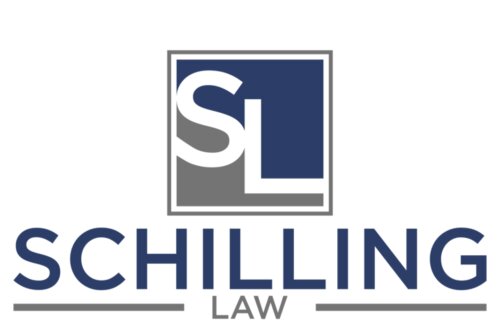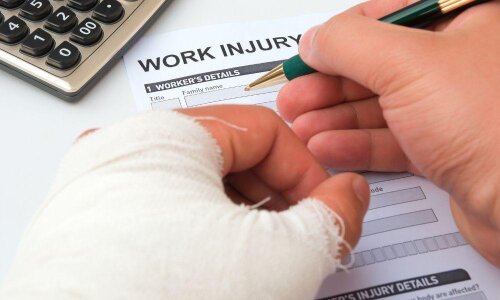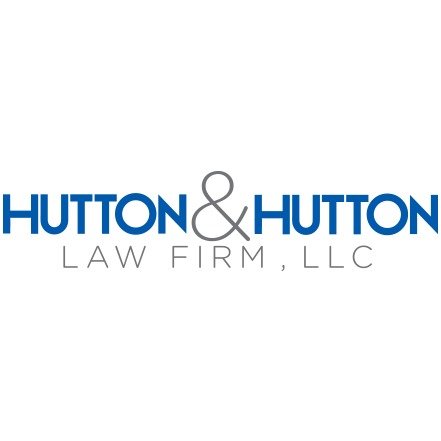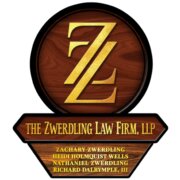Best Car Accident Lawyers in Kansas
Share your needs with us, get contacted by law firms.
Free. Takes 2 min.
Or refine your search by selecting a city:
List of the best lawyers in Kansas, United States
About Car Accident Law in Kansas, United States
Car accidents are a common occurrence in Kansas, and the law surrounding them is designed to protect both victims and drivers. Car accident law covers situations where individuals are injured or suffer property damage due to vehicle collisions. In Kansas, specific statutes and court decisions shape how car accident claims are handled. The law addresses issues like fault, insurance requirements, compensation for injuries and property damage, and legal obligations after an accident. Navigating these laws can be complex, especially when dealing with insurance companies and understanding your rights.
Why You May Need a Lawyer
While minor accidents with minimal damage may not require legal representation, there are many situations when a lawyer can provide crucial assistance. If you are seriously injured, face significant medical expenses, or encounter disputes with insurance companies, a lawyer can help you understand your rights and secure fair compensation. Legal help is also valuable if there is disagreement about who was at fault, if the other party is uninsured or underinsured, or if you are accused of causing the accident. In cases involving fatalities, long-term disability, or complex injuries, legal expertise becomes even more important to ensure you receive the full amount you are entitled to under Kansas law.
Local Laws Overview
Kansas operates as a "no-fault" state when it comes to car accidents. This means that, regardless of who caused the accident, your own insurance typically pays for your medical expenses and certain other losses, up to the limits of your policy. Every driver in Kansas is required to carry Personal Injury Protection (PIP) coverage as part of their auto insurance. However, for more serious injuries or when expenses exceed PIP limits, you may be able to pursue a claim against the at-fault driver.
Kansas law also imposes deadlines for filing lawsuits related to car accidents, known as the statute of limitations. Generally, you must file a personal injury lawsuit within two years of the accident. Kansas follows a "modified comparative fault" rule, meaning your compensation can be reduced if you are found to be partially at fault for the accident. However, if you are found to be 50 percent or more at fault, you cannot recover damages from the other party.
Other important Kansas-specific rules include mandatory reporting of certain accidents, requirements for uninsured and underinsured motorist coverage, and strict penalties for leaving the scene of an accident or driving without insurance.
Frequently Asked Questions
What should I do immediately after a car accident in Kansas?
First, check for injuries and call 911 if necessary. Move your vehicle to a safe location if possible. Exchange information with the other driver, including names, contact details, and insurance information. Take photos of the scene and report the accident to law enforcement if there are injuries, fatalities, or significant property damage. Notify your insurance company as soon as possible.
What does "no-fault" mean in Kansas car accident law?
"No-fault" means your own insurance pays for your medical bills and related costs regardless of who was at fault in the accident, up to the limits of your Personal Injury Protection (PIP) policy. Serious or costly injuries may allow you to step outside of the no-fault system and pursue a claim against the at-fault driver.
How long do I have to file a car accident lawsuit in Kansas?
The statute of limitations for most car accident personal injury claims in Kansas is two years from the date of the accident. For property damage claims, the deadline is usually three years. Missing these deadlines can prevent you from recovering any compensation.
Can I recover damages if I was partially at fault?
Kansas uses a modified comparative fault system. If you are found less than 50 percent at fault, you can still recover damages, but your compensation will be reduced by your percentage of fault. If you are found 50 percent or more at fault, you cannot recover damages from the other party.
What expenses are covered by Kansas Personal Injury Protection (PIP)?
PIP coverage in Kansas includes medical expenses, lost wages, rehabilitation costs, funeral expenses, and certain other reasonable and necessary costs resulting from an accident, up to policy limits.
What if the other driver is uninsured or underinsured?
Kansas law requires that your own insurance policy include uninsured and underinsured motorist coverage. This can help cover your expenses if the at-fault driver does not have enough insurance to cover your damages.
Do I have to report every car accident to the police in Kansas?
You must report an accident to law enforcement if it results in injury, death, or property damage of $1,000 or more. Failing to report such accidents can result in penalties.
How can a lawyer help me after a serious car accident?
A lawyer can investigate your accident, gather evidence, negotiate with insurance companies, calculate the value of your claim, and represent you in court if necessary. Legal help increases your chances of receiving fair compensation, especially in complex or disputed cases.
What if I cannot work after a car accident?
PIP benefits may cover a portion of your lost wages, up to the limits of your policy. If another driver was at fault, you may also be able to pursue additional compensation for lost wages through a personal injury claim.
How can I find a reputable car accident lawyer in Kansas?
You can research lawyers through the Kansas Bar Association, read reviews, ask for referrals, and set up consultations to discuss experience and fees. Be sure to choose a lawyer with experience in Kansas car accident law.
Additional Resources
Kansas Department of Transportation offers statistics and safety tips related to roadway accidents. Kansas Insurance Department provides information about required auto insurance coverage and how to file insurance complaints. Kansas Bar Association can help you find qualified car accident attorneys. Local law enforcement agencies, such as city police and county sheriffs, can provide accident reports. Victim support organizations may offer guidance and resources for accident survivors.
Next Steps
If you have been involved in a car accident in Kansas, prioritize your health and safety first. Gather all necessary information and report the accident as required by law. Notify your insurance company promptly and begin documenting your injuries, damages, and related expenses. If you have questions or your situation is complex, consult with a Kansas car accident lawyer to discuss your options and protect your legal rights. Many attorneys offer free initial consultations and work on a contingency fee basis, meaning you pay only if you recover compensation. Take action quickly to ensure you meet all deadlines and preserve your ability to recover damages.
Lawzana helps you find the best lawyers and law firms in Kansas through a curated and pre-screened list of qualified legal professionals. Our platform offers rankings and detailed profiles of attorneys and law firms, allowing you to compare based on practice areas, including Car Accident, experience, and client feedback.
Each profile includes a description of the firm's areas of practice, client reviews, team members and partners, year of establishment, spoken languages, office locations, contact information, social media presence, and any published articles or resources. Most firms on our platform speak English and are experienced in both local and international legal matters.
Get a quote from top-rated law firms in Kansas, United States — quickly, securely, and without unnecessary hassle.
Disclaimer:
The information provided on this page is for general informational purposes only and does not constitute legal advice. While we strive to ensure the accuracy and relevance of the content, legal information may change over time, and interpretations of the law can vary. You should always consult with a qualified legal professional for advice specific to your situation.
We disclaim all liability for actions taken or not taken based on the content of this page. If you believe any information is incorrect or outdated, please contact us, and we will review and update it where appropriate.
Browse car accident law firms by city in Kansas
Refine your search by selecting a city.














